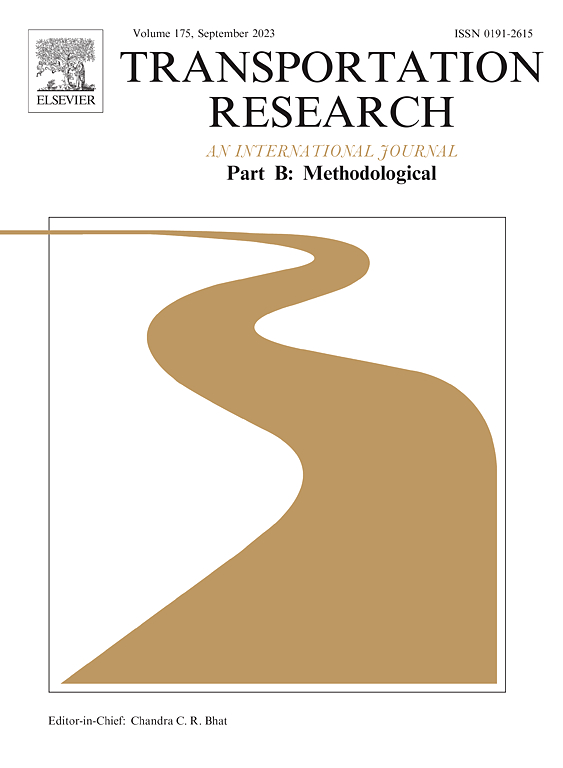飞机回收与预先取消
IF 6.3
1区 工程技术
Q1 ECONOMICS
引用次数: 0
摘要
航空公司通常对航班中断采取观望策略,导致在最后一刻取消航班。这不仅会产生额外的赔偿成本,而且会严重影响乘客的出行体验。为了减少这些损失,我们引入了航班提前取消的概念,它被定义为在起飞前一到几天取消航班。为了针对未来的随机天气条件做出预取消决策,我们开发了一个旨在使总恢复成本最小化的两阶段随机模型。为了求解该模型,我们设计了一种拉格朗日对偶分解(LDD)方法,该方法有效地将模型分解为与场景无关的子模型。然后通过列生成框架求解这些子模型。此外,我们提出了一种基于双变量评估策略(DVS)来加速LDD的求解过程。我们使用来自三家航空公司的真实运营数据来评估我们的模型和算法的有效性和效率,这些数据通过真实的台风数据进行了测试。计算结果表明,LDD可以得到最优线性规划(LP)解和近最优整数规划(IP)解。与基线列生成算法相比,LDD和LDD- dvs的求解次数分别减少了41%和46%。此外,对真实台风数据进行的测试表明,与仅考虑实时取消决策的解决方案相比,通过纳入预取消决策,该解决方案平均节省了17%的成本。本文章由计算机程序翻译,如有差异,请以英文原文为准。
Aircraft recovery with precancellation
Airlines often adopt a wait-and-see strategy for disruptions, resulting in canceling flights at the last moment. This not only incurs extra compensation costs but also significantly affects passengers’ travel experiences. To mitigate these losses, we introduce the concept of flight precancellation, which is defined as canceling flights one to several days before departure. To make precancellation decisions with respect to stochastic future weather conditions, we develop a two-stage stochastic model aimed at minimizing the overall recovery cost. To solve this model, we design a Lagrangian dual decomposition (LDD) approach, which efficiently decomposes the model into scenario-independent submodels. These submodels are then solved by a column generation framework. Additionally, we propose a dual-based variable evaluation strategy (DVS) to accelerate the solving process of LDD. We evaluate the effectiveness and efficiency of our model and algorithms using real operational data from three airlines, which are tested via real typhoon data. The computational results show that LDD can obtain optimal linear programming (LP) solutions and near-optimal integer programming (IP) solutions. Compared with the baseline column generation algorithm, the solution times for LDD and LDD-DVS are reduced by 41% and 46%, respectively. Additionally, tests conducted on real typhoon data demonstrate that, by incorporating precancellation decisions, it achieves an average cost savings of 17% compared with solutions that consider only real-time cancellation decisions.
求助全文
通过发布文献求助,成功后即可免费获取论文全文。
去求助
来源期刊
CiteScore
12.40
自引率
8.80%
发文量
143
审稿时长
14.1 weeks
期刊介绍:
Transportation Research: Part B publishes papers on all methodological aspects of the subject, particularly those that require mathematical analysis. The general theme of the journal is the development and solution of problems that are adequately motivated to deal with important aspects of the design and/or analysis of transportation systems. Areas covered include: traffic flow; design and analysis of transportation networks; control and scheduling; optimization; queuing theory; logistics; supply chains; development and application of statistical, econometric and mathematical models to address transportation problems; cost models; pricing and/or investment; traveler or shipper behavior; cost-benefit methodologies.

 求助内容:
求助内容: 应助结果提醒方式:
应助结果提醒方式:


